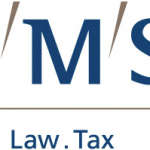Ramón Fernández Vigil and Alejandro Del Castillo Ramírez give an overview of litigation laws and regulations that may occur in Mexico
What are the main methods of resolving commercial disputes?
The main methods of resolving commercial disputes in Mexico are: a) ordinary commercial trial, b) executive commercial trial, c) special proceedings, d) oral commercial trial, e) bankruptcy proceedings (concurso mercantil), f) arbitration, and g) mediation.
How long does it typically take from commencing proceedings to get to trial?
In Mexico, every trial begins with the filing of the corresponding complaint before the appropriate civil court. Once the complaint has been filed, the judge will issue (in three to five days) a ruling ordering the summon of the defendants. Once the defendants are served and summoned to court, they will have 15 business days to file their reply/answer, except in the case of the executive commercial trial, in which defendants have eight business days to file their reply/answer.
Are hearings held in public and are documents filed at court available to the public? Are there any exceptions?
All hearing are held in public, nonetheless there are several cases in which the judge is authorised to hold private hearings, such as family law matters.
Regarding documents that are filed at court, they are not available to the public, unless the parties waive their right for privacy or there is a higher court order granting access (typically from federal courts in amparo proceedings). However, judgments in federal courts are made public via the internet, but the personal information of the parties is deleted.
What, if any, are the pre-action conduct requirements in your jurisdiction and what, if any, are the consequences of non-compliance?
In general terms, there are no pre-action conduct requirement before turning to litigation. Even though there are alternate means to solve disputes, they are not mandatory in Mexico, so parties are allowed to present their claims even if a settlement is being explored. For that reason, there are no sanctions for non-compliance.
All hearing are held in public, nonetheless there are several cases in which the judge is authorised to hold private hearings, such as family law matters.
However, specific actions do have specific requirements. For example, for executive commercial trials, the original note has to be presented for collection. In other cases, when the obligation does not specify a specific date for compliance, a pre-requisite is to demand compliance within the next 30 days. In shareholders disputes, the stocks have to be deposited before a notary public or credit institution before filing the complaint. In bankruptcy proceedings, it must be demonstrated a generalised default or breach of payment by the debtor of its obligations, which consists of the default of its obligations of payment to two or more different creditors and the fulfilment of certain conditions. Therefore, before filing a specific action, litigators must analyse the specific requisites provided for in the law regarding the action to be initiated.
How are commercial proceedings commenced? Is service necessary and, if so, is this done by the court (or its agent) or by the parties?
In Mexico, commercial proceedings are commenced when the plaintiff files its complaint before the civil court along with all relevant documents, defendant’s addresses, and the names of any witnesses they intend to call.
Once a claim is admitted by the judge, the defendant will be summoned to court and must respond the claim within 15 business days following such notification, unless it is an executive commercial trial, in which case the complaint must be replied within eight business days.
Every court has special officers that are in charge of delivering personal notifications to the parties in their designated addresses. Daily notifications are published every day in a judicial bulletin. All of these services are public and provided by the courts.
How does the court determine whether it has jurisdiction over a claim?
First of all, every claim must be filed before a competent court, which can be determined by i) the amount in controversy, ii) by the nature of the case and the type of relief sought, which is also known as subject matter jurisdiction, and iii) territorial jurisdiction.
Additionally, in order for the court to determine whether it has jurisdiction or not over a claim, it must observe if the parties submitted expressly or tacitly to such jurisdiction. There is express submission when the interested parties renounce to the venue that the law grants them, and they choose a specific forum or venue to bring an action. Usually, this submission is made in the contract or agreement celebrated between the parties. On the other hand tacitly submission happens when the plaintiff files a lawsuit before the judge deemed to have jurisdiction, or when the defendant responds to the claim or files a counter claim before the same judge without raising a lack of jurisdiction defense. In those cases the court determines it has jurisdiction.
In what circumstances, if any, can claims be disposed of without a full trial?
Claims can be disposed of without a full trail in several cases, but generally for the following:
a) If the plaintiff does not comply with the requirements of its complaint, even after being warned by the judge to emend the complaint for deficiencies or errors in it (for example, to clarify the names or addresses of the defendants, to exhibit certain documents, to clarify certain facts, etc.)
b) If the judge orders his court lacks jurisdiction.
c) If the complaint needs a previous ruling on a different matter before moving forward.
d) If the claim is necessarily related to another claim before
a different court.
e) Lack of standing of the plaintiff.
f) Lack of compliance of the conditions that the claims are subject to.
g) Filing in an inappropriate method/way.
What, if any, are the main types of interim remedies available?
The Commerce Code regulates interim remedies that the parties can request in order to maintain the status quo during trial. In other words, an interim measure is granted by a judge to immediately preserve the current status existing among the parties, or to refrain a party form taking certain actions that could make it impossible to obtain relief.
Interim remedies can be granted prior or during trial when there is a founded fear that the person against whom a lawsuit will be filed, may disappear or hide to avoid being summoned to trial; or when there is a founded fear that the assets will be disposed of.
Additionally, recent court precedents have determined that other precautionary measures referred to in other regulations such as the Federal Code for Civil Procedures, are also available for the parties in commercial litigation.
After a claim has been commenced, what written documents must (or can) the parties submit and what is the usual timetable?
In all proceedings, plaintiffs must file their complaint with all the documents that support their claim. Same rule applies to the defendants, that is, when they file their reply or counterclaim, all documents available must be presented.
However, if the parties don’t have the documents at their disposal, they must announce them to the judge and demonstrate an intent to obtain them. In light of that, the judge will decide whether issuing a judicial order to obtain the documents, or if it is possible, to grant the interested party an extension to submit such documents.
There are certain exceptions that allow the parties to submit documents once the trial has been commenced, such as: in case there is evidence not known at the time of filing; when the plaintiff responds to and contradicts the defendant’s answer to the claim; in response to a counterclaim, if any.
Notwithstanding the foregoing, all documents must be submitted to court, before the day the evidence phase of the trial is concluded, and before the parties move for closing arguments.
What, if any, are the rules for disclosure of documents? Are there any exceptions (eg on grounds of privilege, confidentiality or public interest)?
As general statute, parties are obliged to present every document that could be used as evidence in trial. Failure to disclose and present all available documents can result in negative inferences drawn up by the judge at judgment, however, there should be an indication that the documents exists and that one of the parties is failing to present such document.
Additionally, it is possible for the parties to request the judge to order third parties or government agencies to submit documents to be used as evidence.
In Mexico there is no such thing as exceptions for disclosure, however, government agencies may deny production of documents based on national security concerns.
How is witness evidence dealt with in commercial litigation (and, in particular, do witnesses give oral and/or written evidence and what, if any, are the rules on cross-examination)? Are depositions permitted?
One of the requirements to offer witnesses in any commercial litigation, is that they must be announced at the time of filing the complaint or its reply/answer, otherwise the witnesses will not be admitted, unless they constitute evidence not known at the time of filling.
Once admitted, the court will schedule a date for the hearing, in which the witnesses will be examined by both parties, first by the offering party, and right after by opposing counsel. Each party is obliged to present their own witnesses, however, the judge can issue a subpoena in case the witnesses refuse to appear.
Is expert evidence permitted and how is it dealt with? Is the expert appointed by the court or the parties and what duties do they owe?
Expert evidence is permitted in commercial litigation. The role of experts is to deliver expert opinions providing specialised knowledge that pertains to a particular subject matter necessary to deliver judgment.
Each party is obliged to present their own witnesses, however, the judge can issue a subpoena in case the witnesses refuse to appear.
The party offering this type of evidence must indicate the subject matter, issues to be determined and the expert appointed. The opposing party will be given the opportunity to deliver comments on the subject matter, indicate additional issues to be determined, and select an expert of its own. The experts are to deliver their testimony in writing, and if they are substantially contradictory, the court will appoint an expert in the same subject matter to deliver its expert opinion.
Party-appointed expert’s fees are paid by each party. The fees of the court-appointed expert, are shared equally among the parties.
Can final and interim decisions be appealed? If so, to which court(s) and within what timescale?
Final and interim decisions can be appealed. Generally, regarding interim decisions the parties can appeal without a stay of execution of the lower court’s judgment within six business days from the issuance of the order appealed. Final judgments can be appealed with a stay of execution of the judgment within nine business days from the issuance of the final judgment appealed. Additionally, some procedural orders can be appealed in a preventive manner, in which the corresponding grounds for appeal are reserved and raised together with appeal against the final judgment. In these cases, the preventive appeal must be filed within three business days from the issuance of the order appealed.
What are the rules governing enforcement of foreign judgments?
The rules that govern the enforcement of foreign judgments in the jurisdiction, are provided for in the Commerce Code and the Federal Code of Civil Proceedings. To enforce a foreign judgment the following requirements must be fulfilled: the judgment must have been resolved in compliance with the procedural rules established under the local law; the judgment must not arise from in rem actions; the court that issued the judgment must have had subject-matter jurisdiction in compliance with foreign regulations supported by the Mexican local regulations; the foreign court will not have subject-matter jurisdiction when the documents that gave place to the foreign judgment established a clause of exclusive jurisdiction to Mexican courts; the defendant must have been personally summoned and its right to be heard in court must have been ensured; the judgment must be final, not subject to further appeal; that a Mexican court is not simultaneously resolving the same case; that the foreign judgment is not contrary to public order; the foreign judgment is dully apostilled.
Local courts will only review the foreign judgment with regards to its authenticity (not regarding its substantial issues), and will determine if such foreign judgment can be enforced in Mexico.
Additionally, enforcement of foreign judgments in Mexico is also ruled by the treaties that the government has signed with other countries. Among others, the following treaties have been signed by the Mexican government: the Inter-American Convention on Extraterritorial Validity of Foreign Judgments and Arbitral Awards; The Convention on Competence in the International Sphere for the Extraterritorial Validity of Foreign Judgments.
Can the costs of litigation (eg court costs, as well as the parties’ costs of instructing lawyers, experts and other professionals) be recovered from the other side?
In commercial proceedings, the cost and legal fees can be recovered from the other side, as stipulated for by the Commerce Code, or when in opinion of the judge, one of the parties has proceeded with recklessness or in bad faith.
In commercial claims, there will always be a judgment for costs, in the following cases:
a) If one of the parties does not offer evidence to demonstrate its claim or defense.
b) If one of the parties submits forged documents, or brings before trial a false or bribed witness.
c) If the defendant is sentenced to pay in an executive commercial trial.
d) If the plaintiff does not obtain a favourable judgment in an executive commercial trial.
e) If one of the parties is sentenced by two judgments issued in the same terms, without taking into account the declaration or ruling on costs of litigation. In this case the judgment on costs of litigations will include both instances.
f) If the plaintiff fails to state a claim upon which relief can be granted.
g) If the defense lacks merit or validity.
h) If one of the parties files a motion, an appeal or a remedy that lacks merit or validity.
The costs of litigation are limited to the tariff available, depending if granted in first or second instance. Generally, when the relief sought is monetary, the tariff is 6% of the relief sought, in first instance, and 8% of the relief sought, in second instance.
What, if any, are the mechanisms for joining third parties to ongoing proceedings and/or consolidating two sets of proceedings?
Third parties can be joined by the plaintiff in its complaint, or by the defendant in its answer. Usually, third parties are called to join for the specific purpose of making them part of the final judgment in order to avoid further litigation against such third party. Additionally, third parties can appear by their own right in support of one of the parties, for the determination of a paramount title or right, or even in opposition to both parties.
Now, consolidation of actions takes place in the following cases: i) identity of the parties and actions, ii) identity of parties and ‘things’, iii) actions that arise from the same cause, iv) identity of actions and ‘things’. Consolidation always aims to avoid having two contradictory judgments, and that is standard followed prior to ordering the unification of cases. If case consolidation occurs, each case is tried separately by the same judge, but only one final judgment is delivered.
What, in your opinion, is the most likely growth area for disputes for the next five years?
In our opinion, the most likely growth area for disputes in Mexico for the next five years will be in the area of oral proceedings. Mexican lawmakers, in recent years, have passed many reforms that order for the majority of the disputes to be resolved in oral trials.
The second area of growth will be in commercial arbitration. Mexico has important arbitration centers and ideal facilities for the conduction of arbitral proceedings. In addition, Mexico has a wide and consolidated body of laws integrated by international laws, that guarantee the resolution of controversies through arbitration in a predictable, certain and secure manner, providing ideal mechanisms for recognition and execution of national and international awards. Therefore, subject to the positive response from Mexican courts, Mexico is a viable alternative to be selected as a place for arbitration.
What, in your opinion, will be the impact of technology on commercial litigation in the next five years?
In the next five years technology will have a huge impact in commercial litigation, especially because everything will be done electronically, from submissions and filings, to notifications and summons. Additionally, everything will be available electronically, so there will be less need to go to courts. This will not only reduce time and costs, but it will also help the environment.

Ramón Fernández Vigil
Partner
E: rfernandez@rgcyk.com

Alejandro Del Castillo Ramírez
Partner
E: acastillo@rgcyk.com











